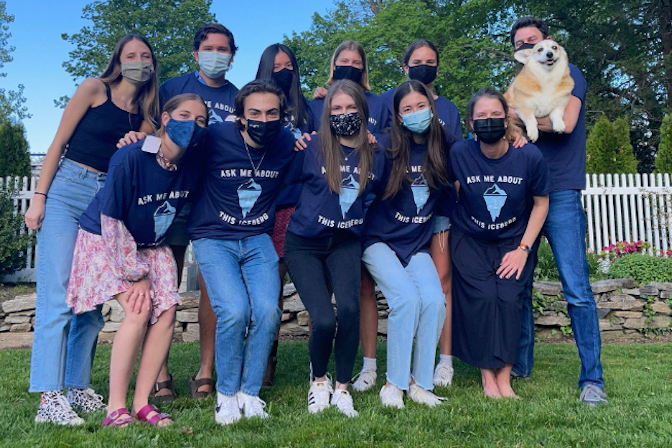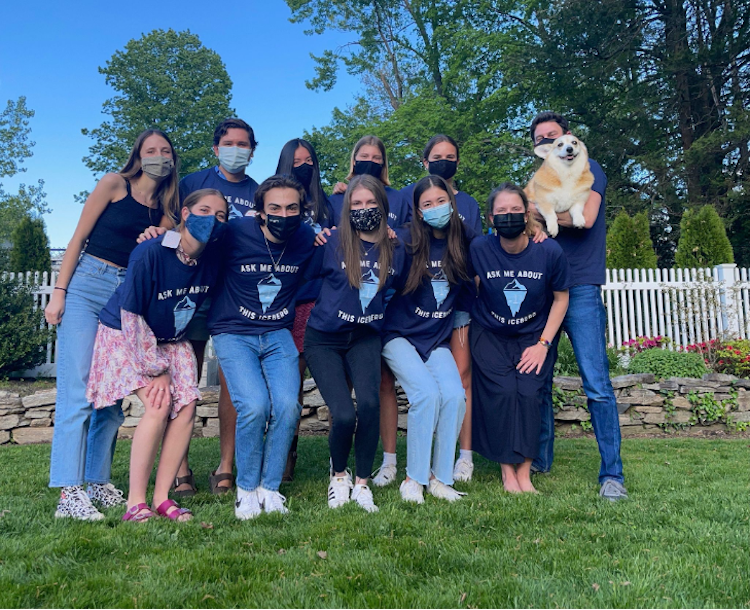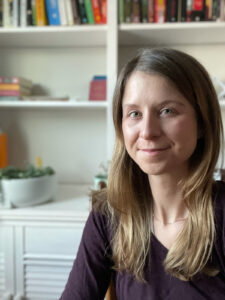New Access-to-Justice Class Helps Students Enact Changes in Civil Law


Assistant Professor of Government Alyx Mark’s aspiring law students arrived at her new service-learning class with a typical set of assumptions about how American courts work: Lawyers do most of the talking, decisions by the Supreme Court are followed to a tee by lower courts, and people who have legal problems tend to resolve them.
However, most individuals’ interactions with the law come through small civil actions—lawsuits, traffic court, and evictions, for example. For many people who live in low-income neighborhoods, not only is finding legal assistance difficult, but when they do access the law, often representing themselves in court, it might make their problem worse.

Thanks to Mark’s new access-to-justice course, offered last spring and planned for every two years, Wesleyan students got a new perspective and a chance to help enact real change. “Wesleyan has a lot to offer to the local community, as well as more globally. We have these entrepreneurial, enthusiastic, and sharp students who want to do good things in the world. So, it’s not a hard sell to go to a community partner and say, ‘Do you want a team of researchers to help you solve this problem?’” Mark said.
After a year of planning, Mark partnered with a civil justice funder, a national civil justice advocacy organization, and a local provider of legal services to offer students practical opportunities to wrestle with systemic issues. Mark also recruited a subject-matter expert, Zach Zarnow of the National Center for State Courts, to provide students with a practitioner’s perspective in their weekly meetings. Mark published her thoughts on the project recently in ABA Journal.
“The community partners articulated what they needed, like a wish list of different types of projects that will help them advance their work. What was nice about the projects is that they all required a different set of research skills,” Mark said. “The community partners loved talking to the students.”
For example, one group of students helped a grantor organization collect data that would enable them to provide more targeted grants, helping them to better understand their impact.
Another project done for a legal aid provider helped to address “legal deserts” in Connecticut. As is the case with food or books, many low-income neighborhoods don’t have access to free legal representation.
Mark’s students worked with Wesleyan geomapping experts to create a state map that displayed all of the places where legal services and information are offered—including law offices, courts, community centers, and libraries—in addition to demographic information scraped from the Census. “They layered all of these things together to make predictions about where the legal service provider could target resources to people who might not be well served,” Mark said.
Mark’s overall goal is to show her students the real interplay between regular citizens and legal officials. How are people who represent themselves in court treated? Do people get the help they need? Is there a way for people to avoid court and still have their legal issue resolved? “How far upstream can we address a potential problem so it doesn’t ever have to enter a courthouse?” Mark asked. The answers are complicated, and justice, for many people, can be elusive.
Mark assigned her students what would seem to be a simple task—applying for a court fee waiver in various jurisdictions across the country. Between outdated websites and confusing language—some places don’t refer to a “fee waiver” as such, using arcane terminology for what should be a simple proposition—it’s difficult for someone facing financial challenges to find this remedy.
In short, the law works for some people and not for others. As Mark said, courts are places designed by lawyers for the use of lawyers. For true legal reform, it will take people from disciplines other than the law to be part of the conversation. “We really need to think critically about how these systems are constructed,” Mark said.
Mark said that the students’ engagement in the course was inspiring. Thanks to deep discussions that challenged all participants’ worldviews, and talks from expert speakers offering their unique perspectives, Mark’s class was motivated to help enact change that can benefit everyone. “It was a dream. I so looked forward to being in the room with them and hearing from them,” Mark said.

